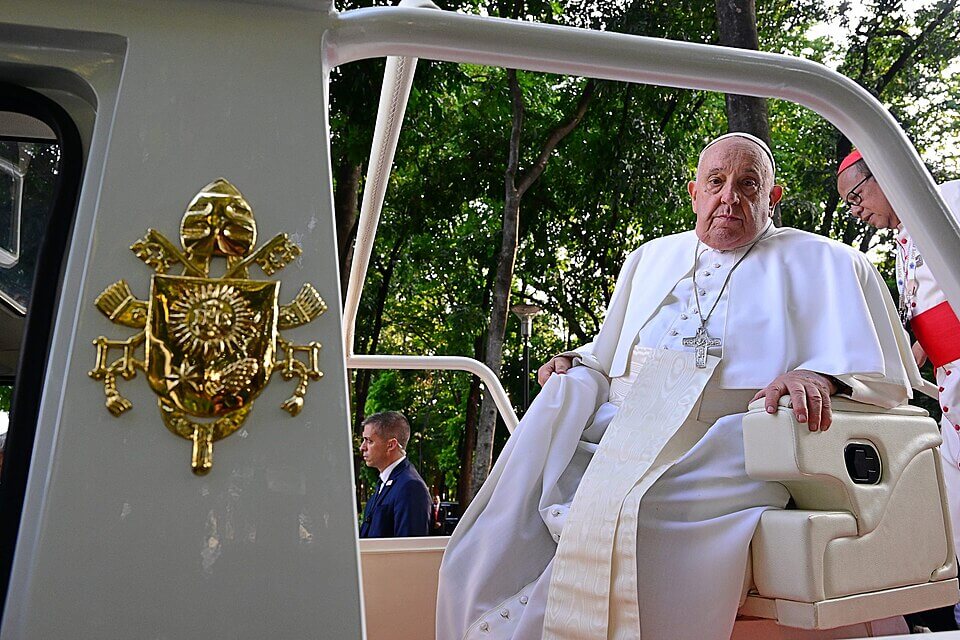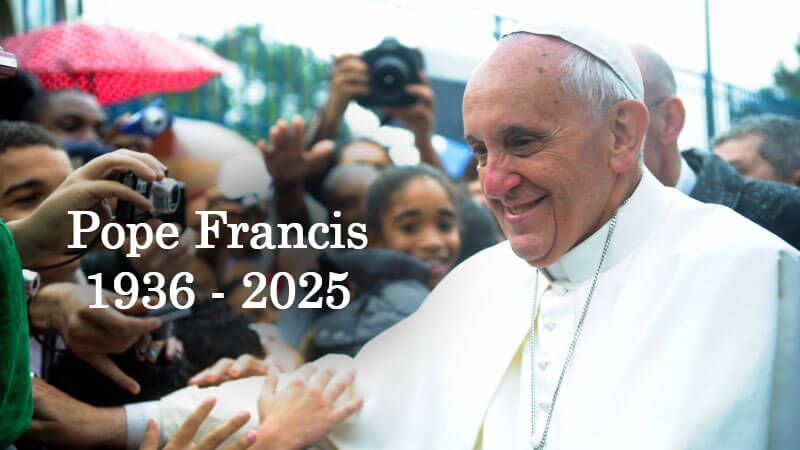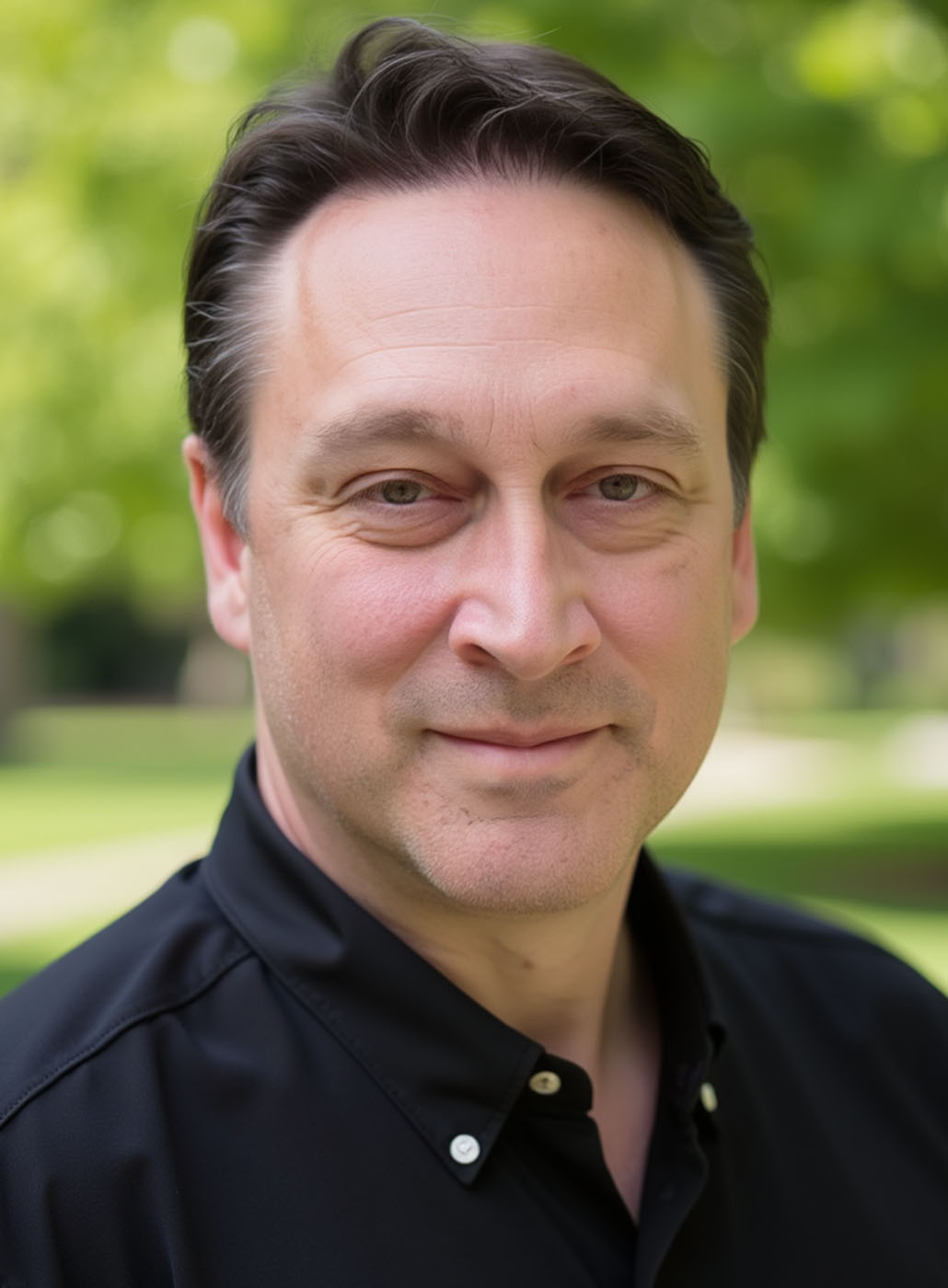
Pope Francis, born Jorge Mario Bergoglio, passed away on Monday morning at the age of 88, as confirmed by the Vatican. His death comes just a day after he delivered an Easter Sunday blessing to a crowd of thousands at St. Peter's Square. Despite recent health struggles, including a hospital stay for double pneumonia, the pontiff had been on the mend since his discharge on March 23.
In what would be his final public appearance, Pope Francis delighted the faithful with a 50-minute tour through the crowd, blessing children and receiving cheers of support. Earlier on Easter Sunday, the Pope also held a private meeting with U.S. Vice President JD Vance, amidst a backdrop of political tension over immigration policies.
Born on December 17, 1936, to Italian immigrants in Buenos Aires, Argentina, Francis's death brings to a close a remarkable 12-year pontificate that redefined the Catholic Church's relationship with the modern world.
From Buenos Aires to the Vatican
Francis's journey to the papacy was unprecedented in many ways. As the eldest of five children in an immigrant household, he initially worked as a chemical technician before entering the Society of Jesus (Jesuits) in 1958. Ordained a priest in 1969, he led the Jesuit order in Argentina during the country's military dictatorship from 1976-1983, a period that would later spark controversy over his actions during those turbulent times.
After serving as Archbishop of Buenos Aires from 1998 and being elevated to cardinal in 2001 by Pope John Paul II, Bergoglio was elected pope on March 13, 2013, becoming the first pontiff from the Americas, the first Jesuit pope, and the first to take the name Francis after St. Francis of Assisi, the 13th-century friar known for his dedication to the poor.
A Pontificate of Firsts
From the moment he appeared on the balcony of St. Peter's Basilica, Francis signaled a departure from tradition. He chose simpler vestments than his predecessors, opted to live in the Vatican guesthouse rather than the papal apartments, and embraced a more informal style of leadership that emphasized pastoral care over pomp and circumstance.
Francis made history as the first Latin American pontiff and the first to visit Iraq, where he met with the country's top Shiite Muslim cleric in 2021. His approach to the papacy was characterized by a focus on the marginalized, a critique of economic inequality, and efforts to reform the Vatican's bureaucracy.
Advocate for Migrants and Refugees
Migration issues became a defining feature of Francis's papacy from its earliest days. His first trip outside Rome in 2013 was to the Italian island of Lampedusa, where he met newly arrived migrants and denounced what he called a "globalization of indifference" toward refugees. Throughout his pontificate, he consistently advocated for more humane migration policies, even when this put him at odds with political leaders.
His actions often matched his words. In 2016, following a visit to a refugee camp in Lesbos, Greece, he brought 12 Syrian Muslim refugees back to Rome on his papal plane. When then-presidential candidate Donald Trump proposed building a wall along the U.S.-Mexico border, Francis remarked that someone who thinks only of building walls "is not Christian," creating a rare public disagreement with a prominent political figure.
Challenging Economic Systems
Francis consistently criticized what he viewed as the excesses of global capitalism. In his 2013 apostolic exhortation "Evangelii Gaudium" (The Joy of the Gospel), he denounced "trickle-down" economic theories and called for financial reforms that would curb the "tyranny" of unfettered markets.
His 2015 encyclical "Laudato Si'" (Praise Be to You) broke new ground as the first papal encyclical focused primarily on environmental issues. In it, he argued that climate change disproportionately affects the poor and called for "swift and unified global action" to address environmental degradation.
A Complex Stance on LGBTQ+ Issues
Perhaps no aspect of Francis's pontificate generated more headlines than his approach to LGBTQ+ issues. Early in his papacy, when asked about gay priests, he famously responded, "Who am I to judge?" - a statement that marked a significant tonal shift from his predecessors. In a 2023 Associated Press interview, he declared that "being homosexual is not a crime," and later that year approved blessings for same-sex couples, provided they don't resemble marriage ceremonies.
However, Francis maintained traditional Catholic teaching that sexual acts outside of marriage between a man and a woman are sinful. In a 2023 letter clarifying his earlier remarks, he wrote, "When I said it is a sin, I was simply referring to Catholic moral teaching, which says that every sexual act outside of marriage is a sin."
Francis also expressed opposition to gender theory, calling it "an ugly ideology of our times, which cancels out the differences and makes everything the same." This position disappointed many LGBTQ+ advocates who had hoped for more fundamental changes in Church teaching.
Opening Doors for Divorced Catholics
In 2016, Francis published "Amoris Laetitia" (The Joy of Love), an apostolic exhortation that opened the way for divorced and civilly remarried Catholics to receive Holy Communion in certain circumstances. This document proved deeply controversial, with some conservative critics accusing him of undermining Church teaching on the indissolubility of marriage.
The document emphasized pastoral discernment and accompaniment rather than rigid application of rules, reflecting Francis's broader approach of meeting people where they are rather than condemning them from afar.
Vatican Reforms and Opposition
Francis initiated significant reforms within the Vatican itself, working to make the Church's central administration more transparent and accountable. He overhauled the Vatican Bank following years of financial scandals, reformed the Roman Curia (the Church's central administrative body), and appointed more diverse leadership from the global South.
These reforms, along with his more progressive stances on various issues, generated unprecedented opposition within the Church. The presence of Pope Emeritus Benedict XVI, who had resigned and was living on Vatican grounds, inadvertently provided a rallying point for some of Francis's critics.
In 2018, Archbishop Carlo Maria Viganò, the Vatican's former ambassador to the United States, published an explosive letter accusing Francis of covering up sexual misconduct allegations against former Cardinal Theodore McCarrick and called for the pope's resignation. The Vatican eventually excommunicated Viganò for schism in 2024 after he continued his public criticism.
A Global Voice
Throughout his pontificate, Francis leveraged his moral authority to weigh in on significant global issues. He played a key role in the 2014 restoration of diplomatic relations between the United States and Cuba, spoke forcefully against the death penalty, and consistently advocated for action on climate change.
In recent years, Francis called for an investigation into whether Israel's military actions in Gaza legally constituted genocide, criticized Israel's attacks on Palestinians, and maintained regular contact with the parish priest of Gaza. He also expressed concerns about artificial intelligence, describing it as "a fascinating tool and also a terrifying one" during the 2024 G7 meeting.
Legacy and the Future
Pope Francis's death leaves a Church transformed by his vision but still grappling with many of the challenges he sought to address. His emphasis on mercy over rigid adherence to rules, his focus on the poor and marginalized, his efforts to make the Church more inclusive, and his calls for environmental stewardship have significantly shaped Catholic identity in the 21st century.
In his memoir "Hope: An Autobiography," published in January 2025, Francis solidified his legacy by reaffirming many of his most controversial positions. As Peter Mancusi, a Northeastern associate teaching professor, observed, "He's reminding people of his values and what he thinks is important and he's signaling to younger people we (the church) are moving in the right direction."
Yet questions remain about how enduring his reforms will be. The College of Cardinals that will select his successor has been significantly reshaped by Francis's appointments, with more representation from the global South and generally more pastorally-oriented prelates. However, the deeply divided reaction to many of his initiatives suggests that the Church continues to navigate tensions between tradition and reform.
As the world mourns Pope Francis, Catholics and non-Catholics alike reflect on the life of a man who sought to make the Church more relevant and compassionate in a complex world. Whether seen as a much-needed reformer or a controversial figure who went too far, there is no question that his papacy leaves an indelible mark on one of the world's oldest institutions. The direction his successor chooses to take will reveal much about whether Francis's vision represented a momentary course correction or a lasting reorientation of Catholicism in the modern world.






